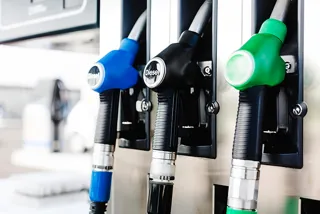Doubling the ethanol in the UK's fuel mix would cut carbon by as much as taking 700,000 cars off the roads, according to a report by the All-Party Parliamentary Group (APGG) for British Bioethanol.
The APGG report also states that without the swift introduction of E10 fuel – a mixture of 10% ethanol with 90% petrol, which is double the current permitted maximum – the UK economy will “likely soon lose” its £1bn biofuel industry.
The report follows an inquiry in March of this year into the lack of progress made by the DfT to publish its consultation into E10, which closed in September 2018.
The APPG report states that “while the UK purports to be a global leader in tackling the climate crisis … the reality is that the UK falls far behind many other countries”.
Furthermore, is claims that if the British bioethanol industry is lost, “the UK will likely become dependent on increasingly scarce and less sustainable biofuel from abroad including used cooking oil (UCO) from China”.
In July last year, the Government launched a low carbon fuels consultation. However, this was swiftly criticised by renewable energy experts who were "immensely frustrated by the ongoing delays" the consultation caused.
Nic Dakin, the chair of the APPG, said “Through this inquiry, we have sought to surface and explore the facts – taking written and oral evidence from the widest possible range of stakeholders from fuel producers and farmers – in order to identify concerns which stand in the way of introducing E10 in the UK.
“While the Department for Transport was invited to contribute to the work of this Inquiry via written or oral evidence, they declined to do so, which is regrettable.
“Nonetheless, I hope the department now takes heed of the findings and recommendations in this Final Report, and the collective efforts of this Group and those who has contributed to our work, will help progress discussions and dislodge a positive decision on this issue by the Department in the very near future, facilitating the managed introduction of this cleaner, greener fuel by 2020 at the latest. A development which members of this APPG as well as its Chair believe is a ‘no brainer’.”
Fleet decision-makers looking to reduce their carbon output can use the Fleet News C02 and fuel economy calculator.




















Login to comment
Comments
No comments have been made yet.